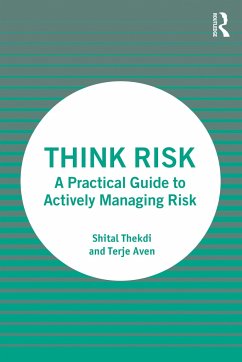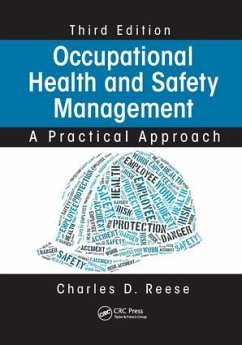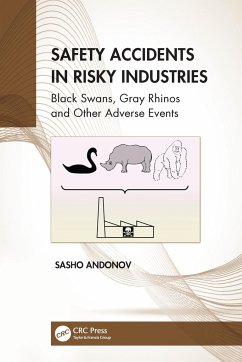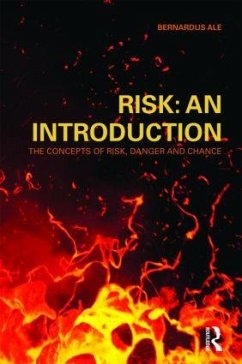
Decoding Black Swans and Other Historic Risk Events
Themes of Progress and Opportunity for Risk Science
Versandkostenfrei!
Versandfertig in 6-10 Tagen
54,99 €
inkl. MwSt.
Weitere Ausgaben:

PAYBACK Punkte
27 °P sammeln!
The field of risk science continues to learn from the long history of events to develop principles and practices that enable individuals, organizations, and societies to understand and manage future risk. Reflecting on these histories reminds us that risk and uncertainty are prevalent, yet it remains important to consider what is on the horizon: the possibility of future events, the consequences of those events, our vulnerability to those events, and how to recover from those events.Decoding Black Swans and Other Historic Risk Events offers a guide to understanding risk events and how to act b...
The field of risk science continues to learn from the long history of events to develop principles and practices that enable individuals, organizations, and societies to understand and manage future risk. Reflecting on these histories reminds us that risk and uncertainty are prevalent, yet it remains important to consider what is on the horizon: the possibility of future events, the consequences of those events, our vulnerability to those events, and how to recover from those events.
Decoding Black Swans and Other Historic Risk Events offers a guide to understanding risk events and how to act before they occur. This book explores past risk events and analyzes how risk science principles apply to those events and studies whether current risk science concepts and approaches could potentially have avoided, reduced the impact, or supported recovery following the risk event. New insights are obtained by applying recent research progress in understanding and managing risk, considering aspects including quality of evidence, information, and misinformation in risk studies. The analysis results are used to identify how risk science approaches contribute to the overall management of risk and societal safety, and where improvements can be obtained, allowing the reader to possess a toolkit for identifying and planning for unsafe events.
This title will be a critical read for professionals in the fields of occupational health and safety, risk management, civil engineering, mechanical engineering, energy, marine engineering, environmental engineering, business and management, and healthcare.
Decoding Black Swans and Other Historic Risk Events offers a guide to understanding risk events and how to act before they occur. This book explores past risk events and analyzes how risk science principles apply to those events and studies whether current risk science concepts and approaches could potentially have avoided, reduced the impact, or supported recovery following the risk event. New insights are obtained by applying recent research progress in understanding and managing risk, considering aspects including quality of evidence, information, and misinformation in risk studies. The analysis results are used to identify how risk science approaches contribute to the overall management of risk and societal safety, and where improvements can be obtained, allowing the reader to possess a toolkit for identifying and planning for unsafe events.
This title will be a critical read for professionals in the fields of occupational health and safety, risk management, civil engineering, mechanical engineering, energy, marine engineering, environmental engineering, business and management, and healthcare.













